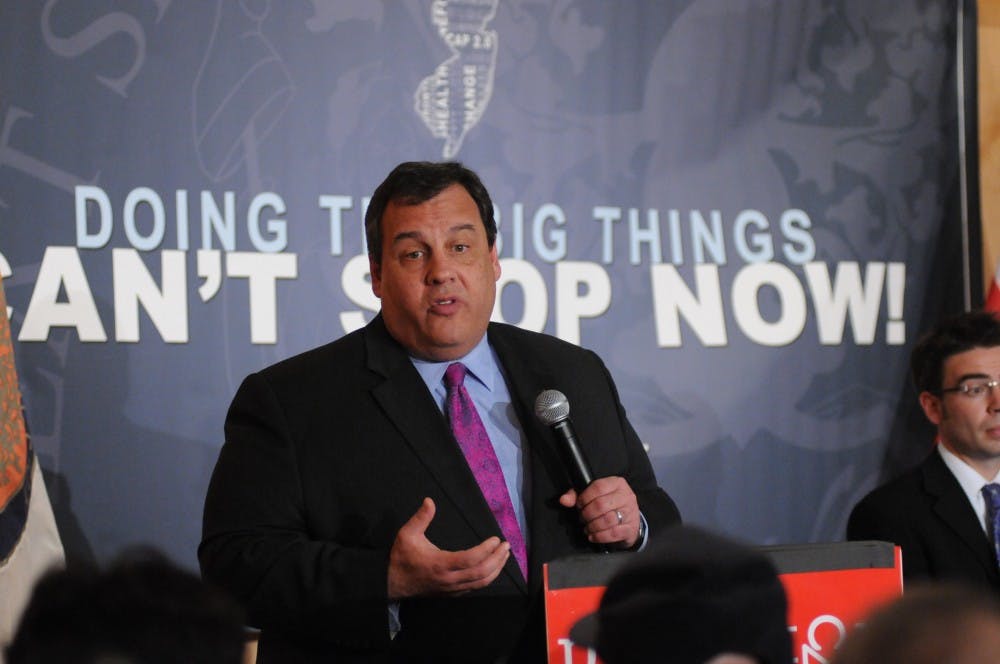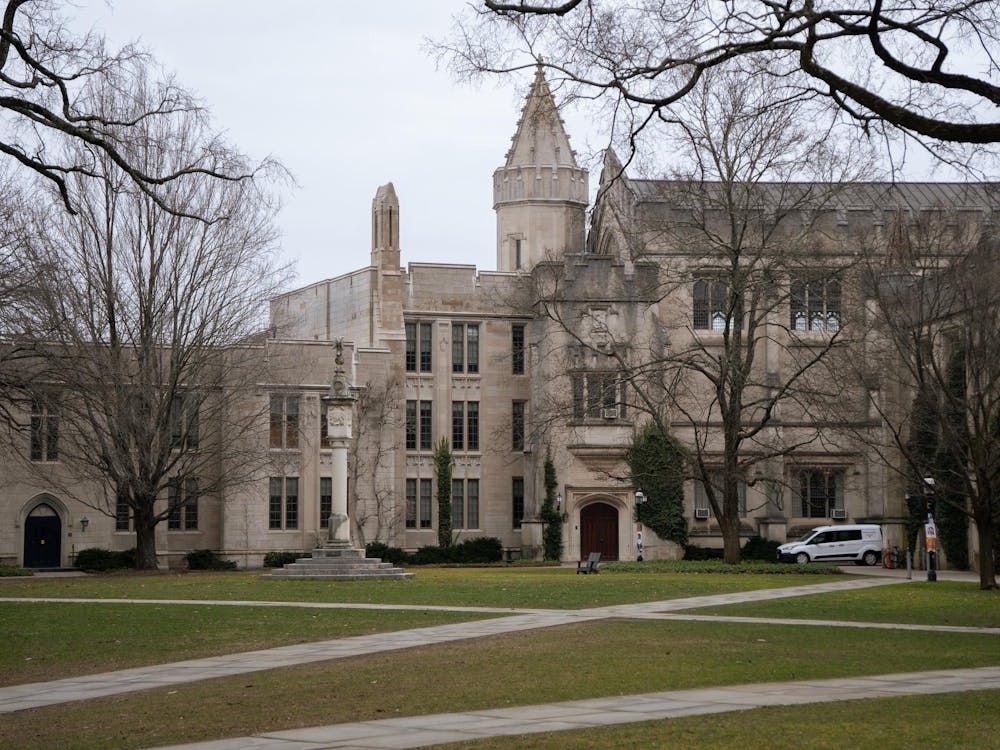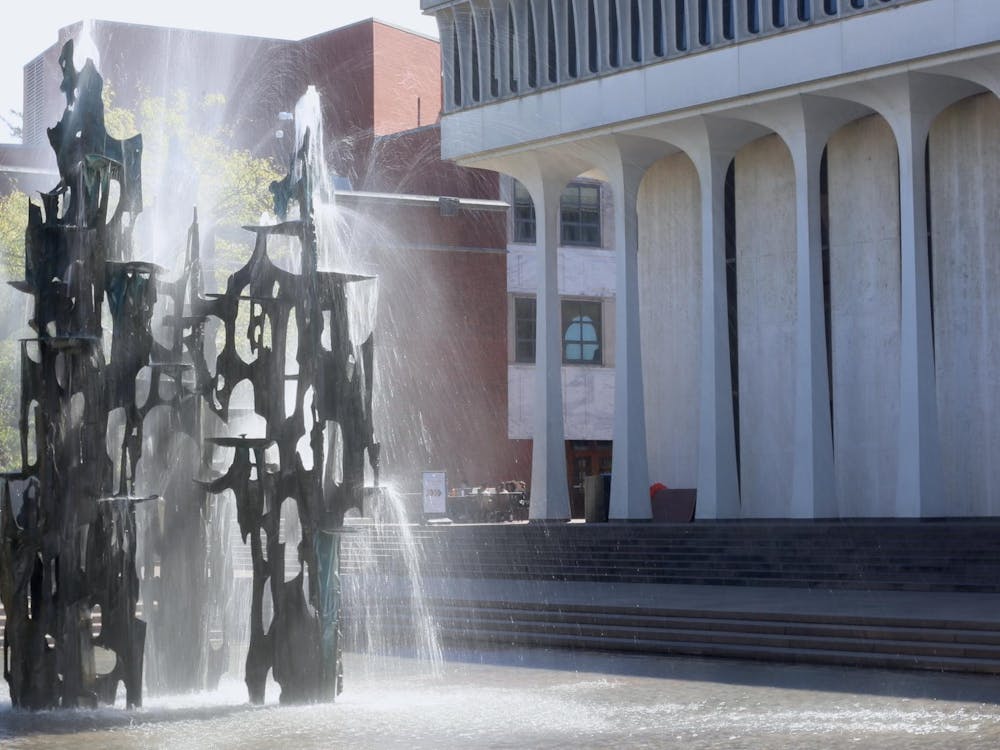In a race that ended as lopsided as it started, Republican incumbent Chris Christie defeated his Democratic challenger, New Jersey State Senator Barbara Buono, by a margin of 60.5 percent to 38 percent with 98 percent of precincts reportingin the Nov. 5 general election to win a second term as governor, the AP reported.
Christie was widely expected to claim victory Tuesday night. Christie delivered his victory speech to a crowd in Ashbury Park, N.J., after 10 p.m. while his family, including Andrew Christie '16, stood by his side.
Though Christie’s 40-point lead in early February had narrowed to 19 points in the week before the election, according to a Fairleigh Dickinson poll taken between Oct. 24 and Oct. 30, the chances that he’d be upset by Buono were slim.
“It’s pretty much a foregone conclusion,” politics professor and department chair Nolan McCarty told The Daily Princetonian the day before the election. “Unless [these polls] are the worst polls in the history of polling.”
Christie’s supporters also felt confident that their candidate would win his reelection challenge prior to the announcement of the official results.
“I’m predicting him to win by a landslide,” Princeton Plasma Physics Laboratory Deputy Director for Operations Adam Cohen, who donated to Christie’s campaign in April, said. He explained that he decided not to donate more because he thought that Christie was “far and away the leader in terms of the campaign.”
Cohen noted Christie’s “war chest of funds,” which contained $13.2 million raised as of late October, according to NJ.com, of which he has spent $9.2 million. By contrast, Buono had raised $2.8 million as of the same date, spending $2.5 million.
Both candidates accepted matching public funds from the state, which under New Jersey law will provide $2 in public funds to gubernatorial candidates who raise more than $380,000 for every $1 raised from private sources, according to the New Jersey Election Law Enforcement Committee’s website.
Despite Christie's overall lead in fundraising, among University-affiliated faculty, staff and administrators, donations went overwhelmingly to Buono.
McCarty explained that these funds were not enough to help Buono because New Jersey is a relatively expensive state to campaign in.
“New Jersey’s a tough state to come from behind in because of how expensive the media markets are and how fragmented they are across Philadelphia and New York,” McCarty said. “There really wasn’t much of a competitive campaign.”
Besides his polling and fundraising advantages, Christie also secured many endorsements from public figures, including key New Jersey Republicans, the Republican National Committee, celebrities such as “Cake Boss” star Buddy Valastro and more than 50 New Jersey Democrats, who have been dubbed “Christiecrats” by the Christie campaign.

“I’m a lifelong Democrat, but I see in Governor Christie someone who actually does the things that he says he’s going to do,” Cohen said. “While I don’t necessarily agree with everything, I think he’s been a very good governor for the state, and I’d like to see him continue.”
Cohen added that he particularly approved of the Governor’s response to Hurricane Sandy. He explained that he felt Christie really cared about the state of New Jersey.
But physics professor Chiara Nappi, another Democrat, explained in an interview before the election that she donated to Buono because the self-described underdog “had the guts to run against Christie.”
Buono said in a Sept. 12 interview that she was very committed to her gubernatorial run despite the hard race ahead.
Buono explained that her frustration with the lack of opportunities for those in the middle class compelled her to run for governor. She added that she was also unhappy with New Jersey’s high unemployment rate and low job creation rate, which she says have left 400,000 New Jerseyans out of work.
“People are suffering,” Buono said. “This governor’s policies have hurt the middle class, and he’s turned his back on them, and they need somebody to go to bat for them, and I understand the struggles because I’ve lived them.”
Will Mantell ’14, president of the College Democrats, said in an interview before the election that his organization supported Buono’s candidacy.
“We think Governor Christie has been bad for schools. We think he’s been bad for jobs. And we think that Buono is the right candidate on those and a plethora of other issues,” Mantell said.
Despite the fact that New Jersey has 700,000 more registered Democrats than registered Republicans, Christie won an easy and overwhelming victory.
Earlier on Tuesday, Holt Dwyer ’15 cast his ballot for the state’s next governor at Carl Icahn Laboratory.
“I just feel like it's a responsible thing to do if you have some stake in the governance of New Jersey for the next four years,” Dwyer said.He added that the lack of competition in the gubernatorial race did not impact his decision to vote.
McCarty explained that it was not unusual for a governor of one party to win an election in a state dominated by the other party.
“Governors are really sometimes in a pretty good position to govern in a bipartisan manner, which gives them an opportunity to get themselves known by the public and basically win reelection not by their partisanship or their ideology but by their performance,” he said. “[Christie] won reelection because most people approve of his performance, and he governed in a fairly bipartisan way and is not identified by the New Jersey public as a hard-core Republican extremist.”
McCarty said that the next step for Christie after his reelection would likely be a presidential run, though he said it was unclear whether Christie could compete against other Republicans in the primary.
“He’s obviously more moderate than most Republican primary voters. His appeal is really that he can attract Democratic votes, and [he has] a fair amount of support from minority voters,” McCarty said. “So he’d be a very strong general election candidate, but whether or not he can get through the primary, where the decision’s going to be made by much more conservative voters, is an open question. I think he has some chance.”









